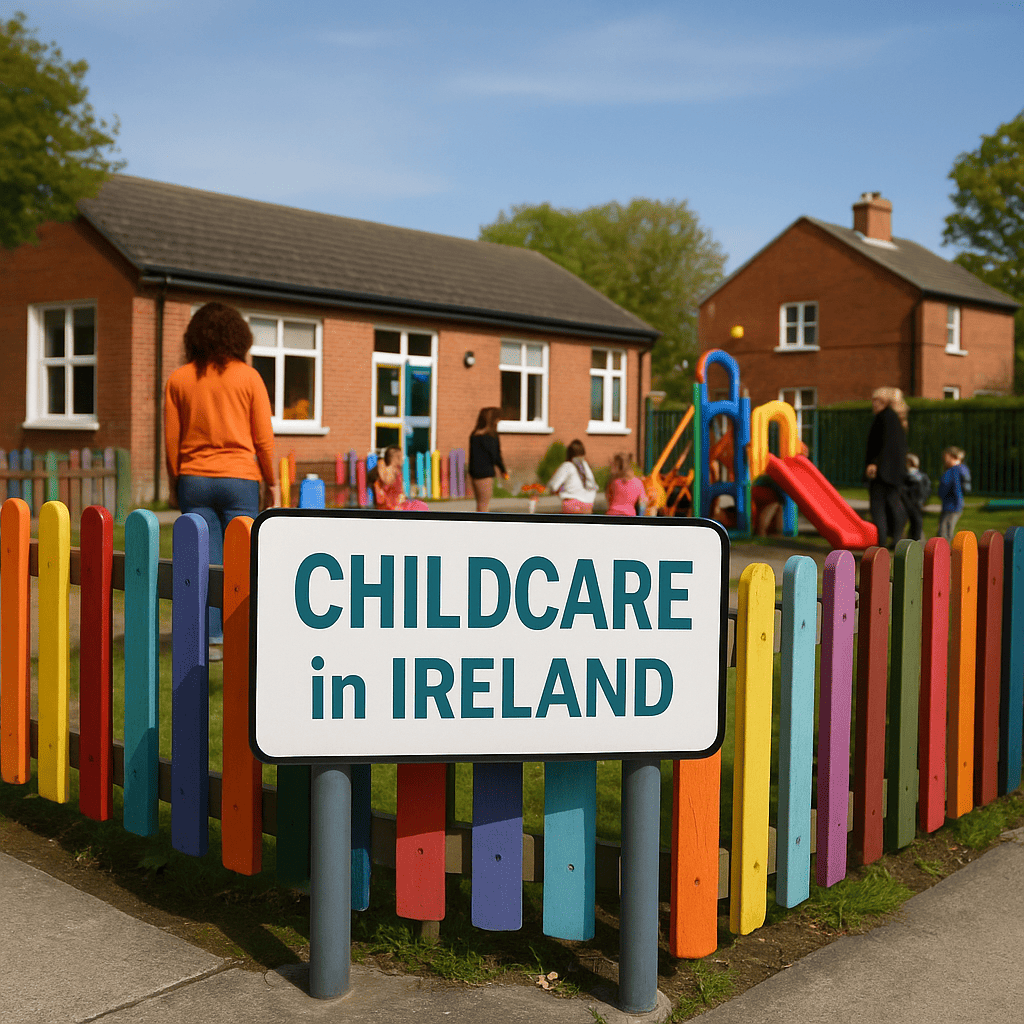Costs: Ireland Among the Highest in Europe
Ireland is regularly ranked among the most expensive countries in Europe for childcare.
- The average weekly cost for full-day childcare is around €186, or about €800 per month before subsidies.
- In Northern Ireland, parents report paying over £1,000 per month for full-time nursery places. After subsidy schemes, that figure can fall to about £739, but remains high compared to average wages.
- Under the National Childcare Scheme (NCS), all families receive at least €2.14 per hour in subsidies for up to 45 hours a week, with higher supports available based on income.
- From autumn 2025, a new fee cap will apply to services enrolled in the government’s Core Funding programme, ensuring families do not pay above a set maximum.
The pressure of costs has made subsidies and free preschool places essential for most households.

What Documents Are Needed to Enrol
To access Ireland’s flagship Early Childhood Care and Education (ECCE) scheme, parents must provide:
- The child’s PPS number and proof of date of birth.
- A completed Pre-Registration Form with details such as Eircode.
- A signed Applicant Declaration Form covering hours, charges, and subsidies.
- A Parent Statement confirming agreements on additional fees or discounts.
Children typically begin ECCE at 2 years and 8 months of age and can benefit from up to two free preschool years. All services must also be registered with Tusla, Ireland’s child and family agency.
Private vs Public: A Mixed System
One of the striking features of Irish childcare is the balance between private and public provision. Unlike countries with a strong state-run nursery system, Ireland relies heavily on private providers.
- About 70% of childcare centres are for-profit, while only 30% operate as community, not-for-profit, or voluntary services.
- Publicly supported centres are more common in some areas than others. In Dublin City, about a third of providers are community-based. But in Fingal, just 5% of services are public — only 16 centres out of 290+.
- Families in cities like Galway rely heavily on crèches and Montessori schools. Galway City has the highest rate of children in crèches in the country, with 57% of children attending.
- Cork offers a wide mix of private Montessori and playschools alongside community-based centres supported by subsidies.
This uneven spread means that access — and affordability — varies sharply depending on where parents live.
Regional Snapshots
- Dublin: Large number of private crèches and after-school clubs; significant demand keeps waiting lists long. Subsidies available but public provision limited outside the city centre.
- Fingal (north Dublin suburbs): Extremely limited public/community childcare — just 5% of providers. Parents here rely heavily on private crèches, often with long commutes and high prices.
- Galway City: Ireland’s leader in crèche attendance — more than half of all children use formal childcare. Private Montessori schools are popular, supported by state subsidies.
- Cork: A diverse mix of Montessori, playschools, and community centres, with both private and public options. Availability varies by neighbourhood.
- Northern Ireland: Costs are among the highest relative to income, with many families paying over £1,000 a month, sparking ongoing debates about subsidies and affordability.
Why It Matters
Ireland’s childcare system reflects broader questions about equity, affordability, and the role of the state. While the ECCE scheme and NCS subsidies have helped ease costs, families in areas dominated by private providers still face financial pressure.
The lack of balance between cities — Dublin vs Galway vs Cork — shows that the childcare debate is not just national but regional. For some families, the choice between public and private is not really a choice at all.
As reforms continue, the challenge remains: can Ireland deliver affordable, accessible childcare in every community, not just where demand meets private supply?
